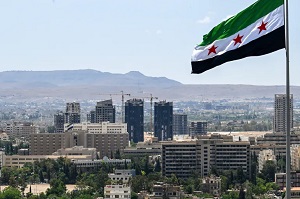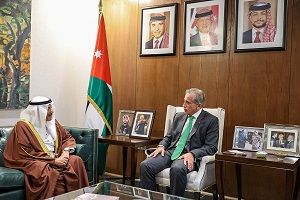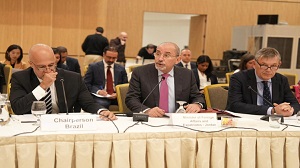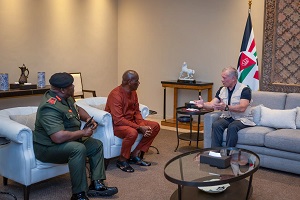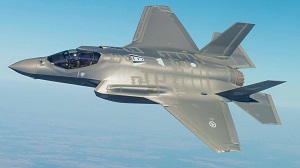Beirut, Damascus Lay Groundwork for a New Relationship
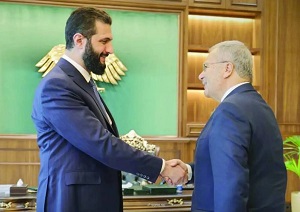
Asharq Al-Awsat
Lebanon’s Deputy Prime Minister Tarek Mitri returned from Damascus with what officials described as significant results, after meeting Syrian President Ahmed al-Sharaa and several ministers.
The visit marked a shift in bilateral ties from tension and caution to a more open and aligned track, reinforcing a joint Lebanese Syrian approach to turn the page on a painful past and establish firmer, long term partnership at a time of regional turmoil, according to sources familiar with the talks.
A clearer picture of the emerging rapprochement is expected soon.
Mitri voiced strong satisfaction with the outcome of his trip, saying meaningful cooperation between the two countries had begun about four months ago and that his meetings in Damascus were meant to build on what had been achieved and to strengthen a path based on transparency, clarity and mutual respect.
Mitri told Asharq Al-Awsat that al-Sharaa had been explicit in his desire to avoid reopening old wounds and to look to the future as the only route to stability, a message Mitri described as a clear political declaration aimed at ending years of mistrust and friction.
Strategic cooperation
Mitri said al-Sharaa laid out a long term vision for strengthening bilateral relations.
He said the Syrian president raised issues on building strategic cooperation in energy, water and security, as well as leveraging each country’s international ties in ways that serve the other’s interests.
Mitri said al-Sharaa recalled positions he had voiced in meetings abroad, including in Washington, where he stressed the importance of consolidating Lebanese-Syrian ties and rebuilding trust.
He also cited a speech he gave two months ago urging both sides to rise above past grievances. Syria, he said, is now convinced that Lebanon has human and economic capacities that can play a key role in Syria’s reconstruction phase.
Political and administrative meetings
Mitri’s mission in Damascus focused on two tracks, the political track centered on his extended meeting with al-Sharaa, and the second - technical, administrative and security - required talks with the ministers of foreign affairs, justice, finance, telecommunications and social affairs.
Mitri said his talks with Syrian ministers delved into sensitive files, including control of the shared border and the demarcation of land and maritime boundaries, particularly with updated maps and reports now available to facilitate the process.
He said both sides agreed to a practical approach based on direct cooperation.
The disputed Shebaa Farms stayed off the negotiating table. Mitri hinted that both sides viewed the issue as highly sensitive, especially because it remains under Israeli occupation, making it unhelpful politically or practically to address it at this time.
Detainee files
Alongside border matters, the issue of Syrian detainees in Lebanon and missing Lebanese in Syria took up a significant portion of the talks.
Mitri said he discussed the complicated file with Syria’s justice minister, adding that Damascus understood the legal procedures followed in Lebanon.
He said both sides agreed on the need to keep working together to find fair solutions and focused on concluding a judicial agreement governing the transfer of Syrian detainees and convicts held in Lebanese prisons.
Mitri said Lebanese Syrian relations now stand at the threshold of a fundamentally different phase from previous years, one based on a shared recognition that stability in Lebanon is inseparable from stability in Syria and that cooperation can no longer be postponed.
He said security and economic pressures, the burden of displacement and overlapping crises make coordination more necessary than ever.
